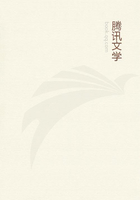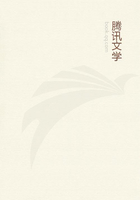Each of the ten kings was absolute in his own city and kingdom. The relations of the different governments to one another were determined by the injunctions of Poseidon, which had been inscribed by the first kings on a column of orichalcum in the temple of Poseidon, at which the kings and princes gathered together and held a festival every fifth and every sixth year alternately. Around the temple ranged the bulls of Poseidon, one of which the ten kings caught and sacrificed, shedding the blood of the victim over the inscription, and vowing not to transgress the laws of their father Poseidon. When night came, they put on azure robes and gave judgment against offenders. The most important of their laws related to their dealings with one another. They were not to take up arms against one another, and were to come to the rescue if any of their brethren were attacked. They were to deliberate in common about war, and the king was not to have the power of life and death over his kinsmen, unless he had the assent of the majority.
For many generations, as tradition tells, the people of Atlantis were obedient to the laws and to the gods, and practised gentleness and wisdom in their intercourse with one another. They knew that they could only have the true use of riches by not caring about them. But gradually the divine portion of their souls became diluted with too much of the mortal admixture, and they began to degenerate, though to the outward eye they appeared glorious as ever at the very time when they were filled with all iniquity. The all-seeing Zeus, wanting to punish them, held a council of the gods, and when he had called them together, he spoke as follows:--No one knew better than Plato how to invent 'a noble lie.' Observe (1) the innocent declaration of Socrates, that the truth of the story is a great advantage: (2) the manner in which traditional names and indications of geography are intermingled ('Why, here be truths!'): (3) the extreme minuteness with which the numbers are given, as in the Old Epic poetry:
(4) the ingenious reason assigned for the Greek names occurring in the Egyptian tale: (5) the remark that the armed statue of Athena indicated the common warrior life of men and women: (6) the particularity with which the third deluge before that of Deucalion is affirmed to have been the great destruction: (7) the happy guess that great geological changes have been effected by water: (8) the indulgence of the prejudice against sailing beyond the Columns, and the popular belief of the shallowness of the ocean in that part: (9) the confession that the depth of the ditch in the Island of Atlantis was not to be believed, and 'yet he could only repeat what he had heard', compared with the statement made in an earlier passage that Poseidon, being a God, found no difficulty in contriving the water-supply of the centre island: (10) the mention of the old rivalry of Poseidon and Athene, and the creation of the first inhabitants out of the soil. Plato here, as elsewhere, ingeniously gives the impression that he is telling the truth which mythology had corrupted.
The world, like a child, has readily, and for the most part unhesitatingly, accepted the tale of the Island of Atlantis. In modern times we hardly seek for traces of the submerged continent; but even Mr. Grote is inclined to believe in the Egyptian poem of Solon of which there is no evidence in antiquity; while others, like Martin, discuss the Egyptian origin of the legend, or like M. de Humboldt, whom he quotes, are disposed to find in it a vestige of a widely-spread tradition. Others, adopting a different vein of reflection, regard the Island of Atlantis as the anticipation of a still greater island--the Continent of America. 'The tale,' says M. Martin, 'rests upon the authority of the Egyptian priests; and the Egyptian priests took a pleasure in deceiving the Greeks.' He never appears to suspect that there is a greater deceiver or magician than the Egyptian priests, that is to say, Plato himself, from the dominion of whose genius the critic and natural philosopher of modern times are not wholly emancipated. Although worthless in respect of any result which can be attained by them, discussions like those of M. Martin (Timee) have an interest of their own, and may be compared to the similar discussions regarding the Lost Tribes (2 Esdras), as showing how the chance word of some poet or philosopher has given birth to endless religious or historical enquiries. (See Introduction to the Timaeus.)
In contrasting the small Greek city numbering about twenty thousand inhabitants with the barbaric greatness of the island of Atlantis, Plato probably intended to show that a state, such as the ideal Athens, was invincible, though matched against any number of opponents (cp. Rep.).
Even in a great empire there might be a degree of virtue and justice, such as the Greeks believed to have existed under the sway of the first Persian kings. But all such empires were liable to degenerate, and soon incurred the anger of the gods. Their Oriental wealth, and splendour of gold and silver, and variety of colours, seemed also to be at variance with the simplicity of Greek notions. In the island of Atlantis, Plato is describing a sort of Babylonian or Egyptian city, to which he opposes the frugal life of the true Hellenic citizen. It is remarkable that in his brief sketch of them, he idealizes the husbandmen 'who are lovers of honour and true husbandmen,' as well as the warriors who are his sole concern in the Republic; and that though he speaks of the common pursuits of men and women, he says nothing of the community of wives and children.
It is singular that Plato should have prefixed the most detested of Athenian names to this dialogue, and even more singular that he should have put into the mouth of Socrates a panegyric on him (Tim.). Yet we know that his character was accounted infamous by Xenophon, and that the mere acquaintance with him was made a subject of accusation against Socrates.
We can only infer that in this, and perhaps in some other cases, Plato's characters have no reference to the actual facts. The desire to do honour to his own family, and the connection with Solon, may have suggested the introduction of his name. Why the Critias was never completed, whether from accident, or from advancing age, or from a sense of the artistic difficulty of the design, cannot be determined.















